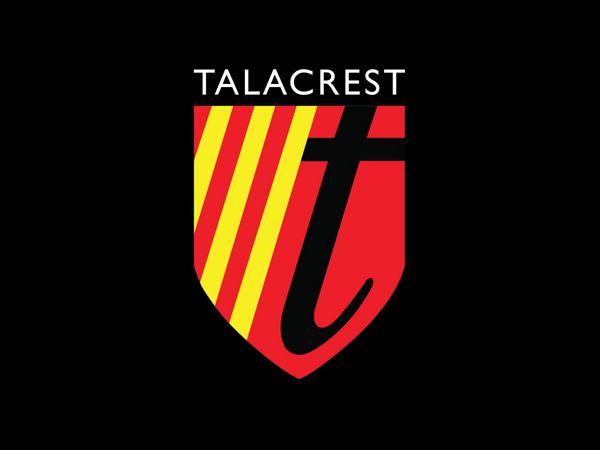Two days into the third week of the 2018 Route du Rhum-Destination Guadeloupe, Pointe-à-Pitre was able to celebrate to great winners in the Rhum Multi class and in the hotly-fought Class40 division of the 3,542-nautical mile solo transatlantic race.
In the amateur Rhum Multi class the outright leader since the start off Saint Malo in Brittany on November 4 and the convincing winner 16 days later was the veteran French sailor Pierre Antoine on his trusty wooden trimaran, Olmix.
In Class40s the victor was again the dominant competitor but this time in a field of 53 boats in Antoine’s fellow French skipper Yoann Richomme on board Veedol-AIC. Richomme got in today well ahead of Aymeric Chapellier on Aina Enfance et Avenir and Britain’s Phil Sharp on Imerys Clean Energy still locked in their private battle for second place.
Hailing from landlocked Amiens, Antoine is a remarkable sailor who at the age of 56 was taking on his fourth Route du Rhum-Destination Guadeloupe. He won his class in 2006 but had to abandon the race four years ago when his yacht was hit by a violent lightening bolt, requiring an extensive programme of repairs and re-building.
This time Olmix which was built back in 1991 and is a boat that Antoine knows inside out, had no such dramas as her skipper sailed a textbook race through early storms and then into the trade winds. He stopped only briefly to pick up the Multi50 skipper Lalou Roucayrol from his upturned trimaran, Arkema, about 1,000 miles east of Guadeloupe.
Antoine’s time was 15 days, 21 hours and 15 minutes which sets a new record for the Rhum Multi class. “It is always special to be at the start of this race, fantastic - it is a step out of the comfort zone to do things that we don't usually do, and so to win it is great, and a conclusive win is so much the better,” said Antoine as the celebrations began ashore.
“I was lucky with the tough conditions at the start because that really favoured my good, solid Olmix, which has already started the Route du Rhum five times, so it feels so good to finish with such a win.
“It was never going to be easy because in this division there were several boats with the same potential and skippers with the experience required. But the bad weather really sorted things out. When I saw a little opening in the weather I really pushed to get clear and that was what allowed me to build this margin, getting into easier weather quickly. I owe my weather router, Dominic Vittet, a big thanks. We worked well together and that let us get away.
“There was no respite, no let-up,” he added. “I just pushed and went fast. It was like a non-stop rodeo. There was no route for us to the north and west and so we had to work the best of the southerly routing. And of course I did not have to stop (for repairs). Then the trade winds were strong, more than 20kts. When it is blowing more than 25 knots it is like being on a flying carpet.
“I had dreamed of winning this time,” he continued. “My first win was a bit hollow because it was a war of attrition and most of my rivals had to abandon or capsized. This time there were 21 starters in our class and several of them were potential winners.”
Antoine, who is director of research at France’s National Scientific Research Centre, also spoke about what it was like to have Roucayrol on board for a few days before the Arkema skipper was picked up by a tug which was on its way back to recover his boat.
“We are so conditioned to being alone, solo, in this race, that to pick up a passenger after 15 days or so feels weird,” he said. “Suddenly you are together, like two astronauts in space. It was not easy, though. Lalou already had experience of the situation (he capsized in 2013) and that really helped, even if getting him off the boat was pretty difficult…I am glad I was there for him because out there anything can happen and we were very far from land.”
When Richomme arrived after 16 days, three hours and 22 minutes at sea on board his Class40 yacht, Veedol-AIC, at 16:22.45UTC he had taken more than half a day off the previous best time for these exciting monohulls. The Frenchman who trained as a naval architect in Southampton and is based in Lorient was overjoyed to have won so convincingly in a competitive fleet.
This had been a textbook race for Richomme and indeed a textbook campaign as he built a new boat, put it through its paces – including dealing with a dismasting early on – and then produced it on the racecourse to devastating effect. Veedol-AIC was faster than the others and its skipper sailed an almost perfect race.
Richomme led the Class40 fleet from day two onwards, having initially sailed a conservative line close to the most direct route - the rhumb line. But he then made a move to the west which allowed him to sail a faster angle earlier than his rivals. He demonstrated great confidence in his boat but showed too a Figaro sailor’s feel for high tempo without going into the red.
As the race progressed the speed and power of his new boat became apparent; in downwind conditions it was between one and two knots quicker than those of Sharp and Chapellier.
“It is incredible,” said Richomme as he looked back on the last 16 days at sea after docking in Pointe-à-Pitre. “First to win the Solitaire (2016) and then this, winning the Route du Rhum, it is great.
“I kind of ask myself how we got here because the project has been difficult. There was so much work to do in such a short time but when I left Saint Malo I was confident in our work. And here, in the end, the scenario is just what I had thought of in my head. It is incredible.”
He was asked whether this had been the prefect ocean race. The 35-year-old who hopes to move onto the Vendee Globe in 2020 did not disagree even if he lost part of his bowsprit as Veedol-AIC thundered down a wave. “It was practically perfect,” he said. “I did the weather strategy perfectly; it played out like we planned. I accelerated from the front as we left Brittany and then after that I just sailed safe but hard. I was always safe but the boat was always safe. I lost two metres off the bowsprit but otherwise the boat has been 100% reliable. I went down a big wave and that was it.”
And he spoke about the team behind his win. “It has been such a team effort, such as big effort by everyone to get me here,” he said, his voice cracking with emotion. “There are so many people who worked on the project.”
And finally Richomme paid tribute to the two sailors locked in a neck-and-neck battle for second place. “I have been amazed for the last 10 days at the match that is going on behind me, two boats so close for so long. Whoever wins second place will certainly have earned it,” added Richomme.


















.jpg?width=1200&height=800&mode=crop)





